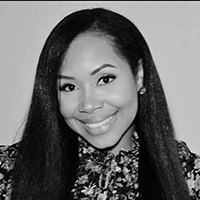Question
What are Implicit Biases?
Answer
So, what exactly are implicit biases? You have probably heard of them before, and you have probably heard of them in many different ways, such as implicit biases, unconscious bias, hidden bias, or implicit social cognition. So, there are many different terms used for implicit bias, but the idea of it is that it is the preference for or against a person, thing, or group held at an unconscious level.
There is also another definition that says it is the attitudes or stereotypes that affect our understanding, actions, and decisions in an unconscious manner. The key thing is that it is unconscious. We all have it, whether or not we want to admit it, but having it does not make you a good, or better, or bad person.
This Ask the Expert is an edited excerpt from the webinar, “Wait. What did you do?”: Strategies for Reducing the Influence of Implicit Biases, presented by Esther Clervaud, EdS.
